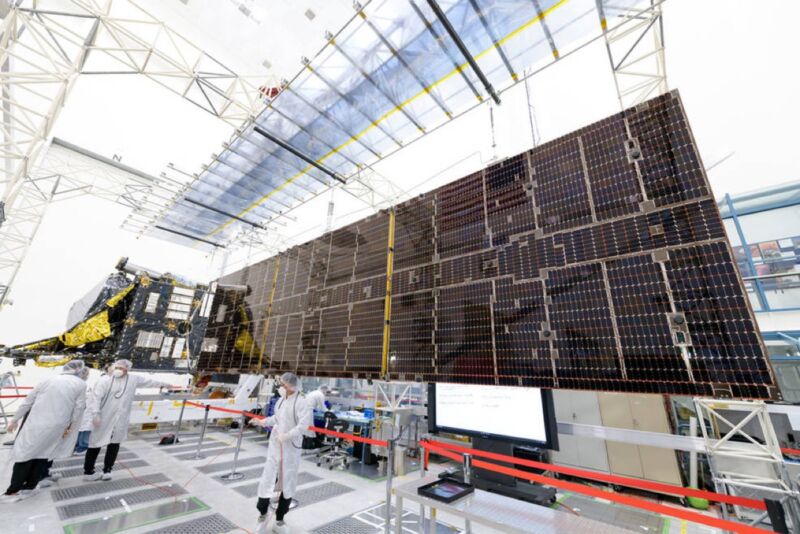
On Friday, NASA held a press call to announce that its planned mission to the asteroid Psyche, planned for launch this autumn, was on indefinite hold. While the spacecraft is ready and has been delivered to the Kennedy Space Center, there has been a delay in validating the software that will run the mission as it operates in remote areas of the Solar System.
That delay has pushed mission readiness past the point where the launch window closes due to alignment changes in the bodies Psyche will pass on its journey to the asteroid of the same name. NASA is saying that a mission review will evaluate all options ranging from cancellation to simply delaying the mission until the next time a window opens. Problematically, Psyche's launch included a ride-along for a separate asteroid mission called Janus that has its own launch windows, so the review will need to include NASA's entire Discovery Mission program more broadly.
Psyche out
The asteroid Psyche is an unusual body in the Solar System. It's the former core of an object that was large enough to form a core of metallic elements; collisions have since stripped away the outer layers of this body, leaving behind something that's nearly entirely metal. Accordingly, visiting Psyche provides the opportunity to improve our understanding of the formation of everything from present-day asteroids to the bodies that merged to form the planets.
And NASA planned to do exactly that through a mission that shared the name of the asteroid. The timing of the launch, however, is critical. Gravitational influences from the planets will affect how quickly Psyche can get into place, and the mission organizers wanted to ensure that the probe arrives at Psyche at a point in the asteroid's orbit where sunlight is favorable for imaging.
As our recent visit to JPL showed, the hardware was ready on time. But there have been problems with validating the mission's software, which combines guidance, navigation, and hardware control. The validation process requires a platform that mimics the hardware on the probe, in some cases via duplicates of the actual onboard hardware. That test platform was only completed recently, and mission planners concluded that there's not enough time to fully test the software before the launch window closes.
Psyche is especially sensitive to its control software since it's moving through the Solar System powered by a weak-but-efficient ion drive. This requires it to start operating under its own control 70 days after launch, in contrast to missions that might get a rocket-powered move out of low Earth orbit, followed by months to years of cruising before some software features become critical.
Without Psyche's launch, the Janus mission is obviously going to be delayed as well. It's not clear at this point whether that mission's future launch windows line up with reasonable windows for launching Psyche.
To figure out what to do next, NASA will form an external review committee to evaluate what went wrong and what the options are going forward. A number of future launch windows are available, and simply delaying the mission is the most likely choice at this point. But the people on NASA's press call seemed remarkably hesitant to take any options off the table, including canceling the mission entirely.
In any case, given that the evaluation panel hasn't been staffed yet, it will be a while before we learn what comes next.
reader comments
146